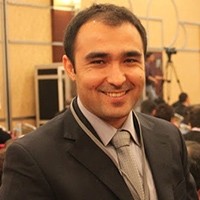Research Article
Aim & Scope
FSECON is a peer refereed open access international journal focusing on political economy. FSECON tries to make significant contributions about the relationship between state, economy and society and wants to become an important means of communication. In addition to book reviews, each issue contains the products of original research on economics, sociology and other related social sciences.
To the authors:
- This journal uses double-blind review.
Fiscaoeconomia started to be published in 2016. Journal welcomes papers for publications as original research papers. The international scientific journal is published three times a year in January, May, and September. Manuscripts submitted to the journal are only accepted if they have not been or will not be published and should not be under review elsewhere. Manuscript’s language is Turkish and English. All responsibility of the studies belongs to the author(s). Studies must be sent to the journal via Dergipark (https://dergipark.org.tr/tr/pub/fsecon) system.
FSECON tries to make significant contributions about the relationship between state, economy and society and wants to became an important means of communication. In addition to book reviews, each issue contains the products of original research on economics, sociology and other related social sciences.
Fiscaoeconomia started to be published in 2016. Journal welcomes papers for publications as original research papers. The international scientific journal is published four times a year in February, May, August and November. Manuscripts submitted to the journal are only accepted if they have not been or will not be published and should not be under review elsewhere. Manuscript’s language is Turkish and English. All responsibility of the studies belongs to the author(s). Studies must be sent to the journal via Dergipark (https://dergipark.org.tr/tr/pub/fsecon) system.
Author Guidelines
1. Makale yüklerken benzerlik raporu da beraberinde eklenmelidir. Benzerlik oranı yüzde 15’i geçmemelidir.
2. Makale muhakkak dergi yazım kurallarına göre düzenlenmelidir: (Örnek dosya için tıklayınız.)
3. Makale yüklemesi yaparken makale üst verileri sekmesinde İngilizce/Türkçe başlıkların ve İngilizce/Türkçe özetlerin, anahtar kelimelerin eksiksiz girilmesi gereklidir.
4. Makalede mutlaka Türkçe ve İngilizce başlıkların her ikisi de bulunmalıdır.
5. Makale Word dosyası olarak yüklenmeli ve dosya içinde/dosya adında yazarlara ilişkin herhangi bir bilgi bulunmamalıdır.
6. Makalenin İngilizce ve Türkçe özetleri 250’şer kelimeyi aşmamalıdır. Bununla birlikte makalenin dili Türkçe ise, ek olarak 1250 kelimelik İngilizce genişletilmiş özet yazılmalı ve metin sonuna eklenmelidir.
7. Makalede en az üç tane jel kodu bulunmalıdır.
8. Makale yüklenmeden önce yazım ve imla konularında gözden geçirilmelidir.
Yukarıdaki hususlardan biri ya birkaçı eksik olduğu takdirde, makale değerlendirmeye alınmayacaktır.
- Makale yazım şablonu örnek şablon
- Dergi yazım kuralları yazım kuralları
- Dergi kapak dosyası kapak dosyası
- APA 7 kaynakça örnekleri APA
----------------------------------------------------------------------------------------------------------------------------------
You may choose to submit your manuscript as a single Word file to be used in the refereeing process (Please click for template file.)
• Title of the manuscript (both Turkish and English). If the manuscript is English, title in English must be 14 Puntos, Bold and the Capitals will be upper case and the Turkish title will be 12 Puntos and Bold and vice versa) (Example. If the manuscript is English the titles will be as such: “Scottish Enlightenment in the Age of Reason”(14p). “Akıl Çağında İskoç Aydınlanması) (12p).
• Abstract (both Turkish and English. If the manuscript is English no need a Turkish abstract. If the manuscript is Turkish an english abstract must be written with minimum 1250 characters)
•Manuscript:
• Include keywords under the abstracts. (min. 3)
• Jel Codes (min. 3)
• All figures (include relevant captions)
• All tables (including titles, description, footnotes)
• Ensure all figure and table citations in the text match the files provided • Indicate clearly if color should be used for any figures in print Graphical Abstracts / Highlights files (where applicable) Supplemental files (where applicable) Further considerations
• Manuscript has been 'spell checked' and 'grammar checked'
• All references mentioned in the Reference List are cited in the text, and vice versa • Permission has been obtained for use of copyrighted material from other sources (including the Internet)
• Relevant declarations of interest have been made
This journal uses double-blind review, which means the identities of the authors are concealed from the reviewers, and vice versa. To facilitate this, please include the following separately: No authors' names and affiliations in the text for the blinded manuscript. The main body of the paper (including the references, figures, tables and any acknowledgements) should not include any identifying information, such as the authors' names or affiliations.
Fiscaoeoconomia Editörlüğü
·
Ethical Principles and Publication Policy
Publication Ethics
The publication process at FSECON is the basis of the improvement and dissemination of information objectively and respectfully. Therefore, the procedures in this process improve the quality of the studies. Peer-reviewed studies are the ones that support and materialize the scientific method. At this point, it is of utmost importance that all parties included in the publication process (authors, readers, and researchers, publishers, reviewers, and editors) comply with the standards of ethical considerations. FSECON expects all parties to hold the following ethical responsibilities. iThenticate, Turnitin, or intihal.net can be used for professional plagiarism detection and prevention.
The following ethical duties and responsibilities are written in light of the guidelines and policies made by the Committee on Publication Ethics (COPE).
Ethical Responsibilities of Authors
The authors who submit their manuscripts to FSECON are expected to comply with the following ethical responsibilities:
• Author(s) must submit original studies to the journal. If they utilize or use other studies, they must make the in-text and end-text references accurately and completely.
• People who have not contributed to the study at the intellectual level should not be indicated as the author.
• If the manuscripts submitted to be published are subject to conflicting interests or relations, these must be explained.
• During the review process of their manuscripts, the author(s) may be asked to supply raw data. In such a case, the author(s) should be ready to submit such data and information to the editorial board.
• Author(s) should document that they have the participants' consent and the necessary permissions related to the sharing and research/analysis of the data that are used.
• Author(s) bears the responsibility to inform the editor of the journal or publisher if they happen to notice a mistake in their study which is in early release or publication process and to cooperate with the editors during the correction or withdrawal process.
• Authors cannot submit their studies to multiple journals simultaneously. Each submission can be made only after the previous one is completed. A study published in another journal cannot be submitted to FSECON.
• Author responsibilities are given in a study (e.g., adding an author, reordering of author names) cannot be changed if the review process has begun.
In terms of ethical rules; the situations requiring Ethics Committee Permission for the researches to be evaluated in the journal are as follows:
• Any research carried out with qualitative or quantitative approaches that require data collection from participants using survey, interview, focus group work, observation, experiment, interview techniques,
• Use of humans and animals (including material/data) for experimental or other scientific purposes,
• Clinical researches on humans,
• Researches on animals,
• Retrospective studies in accordance with the law of protection of personal data.
In this context, in the studies to be evaluated in our journal;
• In the case reports, it is stated that the “informed consent form” was taken,
• Obtaining and expressing permission from the owners for the use of scales, surveys, and photographs belonging to others,
• It should be noted that the copyright regulations are complied with for the ideas and works of art used.
Ethical Responsibilities of Editors
The editors of FSECON should hold the following ethical responsibilities that are based on the guides "COPE Code of Conduct and Best Practice Guidelines for Journal Editors" and "COPE Best Practice Guidelines for Journal Editors" published as open Access by Committee on Publication Ethics (COPE).
General duties and responsibilities
Editors are responsible for each study published in the FSECON. In this respect, the editors have the following roles and responsibilities:
• Making efforts to meet the demand for knowledge from readers and authors,
• Ensuring the continuous development of the journal,
• Managing the procedures aimed to improve the quality of the studies published in the journal,
• Supporting intellectual freedom,
• Ensuring academic integrity,
• Following the procedures without making concessions on intellectual property rights and ethical standards,
• Being transparent and clear in issues that require correction or explanation.
• Relationships with readers
Editors must make decisions taking into consideration the knowledge, skills, and expectations of all readers, researchers, and practitioners that they need. Editors must also ensure that the published studies should contribute to the literature and be original. Moreover, they must take notice of the feedback received from readers, researchers, and practitioners and provide explanatory and informative feedback.
Relationships with Authors
Editors have the following duties and responsibilities in their relations with authors:
• Editors must make positive or negative decisions about the studies' importance, originality, validity, clarity in wording, and suitability with the journal's aims and objectives.
• Editors must take the studies that are within the scope of the publication into the pre-review process unless there are serious problems with the study.
• Editors must not ignore positive suggestions made by reviewers unless there are serious problems with the study.
• New editors, unless there are serious issues, must not change the previous editor's decisions about the studies.
• "Blind Review and Review Process" must be published and editors must prevent possible diversions from the defined processes.
• Editors must publish an "Author's Guide" that is comprehensive enough in answering queries by authors. This guide must be updated regularly.
• The authors should be provided with explanatory and informative feedback.
Relationships with Reviewers
Editors have the following duties and responsibilities in their relations with reviewers:
Editors must;
• choose reviewers according to the subject of the study.
• provide the information and guidance reviewers may need during the review process.
• observe whether there are conflicting interests between reviewers and authors.
• keep the identities of reviewers confidential in a blind review.
• encourage the reviewers to review the manuscript in an unbiased, scientific, and objective tone.
• evaluate reviewers regularly based on criteria like performance and timing.
• develop practices and policies that increase the performance of reviewers.
• take the necessary steps to update the reviewer pool dynamically.
• prevent unkind and unscientific reviews.
• make an effort to ensure the reviewer pool has a wide range.
Relationships with the Editorial Board
Editors must make sure that the members of the editorial board follow the procedures in accordance with the publication policies and guidelines, and must inform the members about the publication policies and developments. The editors must also train new members of the editorial board and provide the information they need.
Moreover, editors must;
• ensure that the members of the editorial board review the manuscripts in an unbiased and independent manner.
• select the new members of the editorial board from those who can contribute to the journal and are qualified enough.
• send manuscripts for review based on the subject of expertise of the editorial board members.
• regularly communicate with the editorial board.
• arrange regular meetings with the editorial board for the development of publication policies and the journal.
Relationships with the Journal's Owner and Publisher
The relationship between the editors and publishers is based on the principle of the independence of editors.
Editorial and Blind Review Processes
Editors are obliged to comply with the policies of the "Blind Review and Review Process" stated in the journal's publication policies. Therefore, the editors ensure that each manuscript is reviewed in an unbiased, fair, and timely manner.
Quality Assurance
Editors must make sure that articles in the journal are published in accordance with the publication policies of the journal and international standards.
Protection of Personal Information
Editors are supposed to protect the personal information related to the subjects or visuals in the studies being reviewed and to reject the study if there is no documentation of the subjects' consent. Furthermore, editors are supposed to protect the personal information of the authors, reviewers, and readers.
Encouraging Ethical Rules and the Protection of Human and Animal Rights
Editors are supposed to protect human and animal rights in the studies being reviewed and must reject the experimental studies which do not have ethical and related committee’s approval about the population given in such studies.
Precautions against possible Abuse and Malpractice
Editors are supposed to take precautions against possible abuse and malpractice. They must conduct investigations meticulously and objectively in determining and evaluating complaints about such situations. They must also share the results of the investigation.
Ensuring Academic Integrity
Editors must make sure that the mistakes, inconsistencies, or misdirections in studies are corrected quickly.
Protection of Intellectual Property Rights
Editors are responsible for protecting the intellectual property rights of all the articles published in the journal and the rights of the journal and author(s) in cases where these rights are violated. Also, editors must take the necessary precautions in order to prevent the content of all published articles from violating the intellectual property rights of other publications.
Constructiveness and Openness to Discussion
Editors must;
• pay attention to the convincing criticism about studies published in the journal and must have a constructive attitude towards such criticism.
• grant the right of reply to the author(s) of the criticized study.
• not ignore or exclude the study that includes negative results.
Complaints
Editors must examine the complaints from authors, reviewers, or readers and respond to them in an explanatory and enlightening manner.
Political and Economic Apprehensions
Neither the owner of the journal, publisher, or any other political or economical factor can influence the independent decision making of the editors.
Conflicting Interests
Editors, acknowledging that there may be conflicting interests between reviewers and other editors, guarantee that the publication process of the manuscripts will be completed in an independent and unbiased manner.
Ethical Responsibilities of Reviewers
The fact that all manuscripts are reviewed through “Blind Review” has a direct influence on the publication quality. This process ensures confidentiality by an objective and independent review. The review process at FSECON is carried out on the principle of double-blind review. Reviewers do not contact the authors directly, and the reviews and comments are conveyed through the journal management system. In this process, the reviewer comments on the evaluation forms, and full texts are assigned to the author(s) by the editor. In this context, the reviewers doing review work for FSECON are supposed to bear the following ethical responsibilities:
Reviewers must;
• agree to review only in their subject of expertise.
• review in an unbiased and confidential manner.
• inform the editor of the journal if they think that they encounter a conflict of interest and decline to review the manuscript during the review process.
• dispose of the manuscripts they have reviewed in accordance with the principle of confidentiality after the review process. Reviewers can use the final versions of the manuscripts they have reviewed only after publication.
• review the manuscript objectively and only in terms of its content and ensure that nationality, gender, religious and political beliefs, and economic apprehension do not influence the review.
• review the manuscript in a constructive and kind tone, avoid making personal comments including hostility, slander, and insult.
• review the manuscript they have agreed to review on time and in accordance with the ethical rules stated above.
• Editors are responsible for all the processes that the manuscripts submitted to the FSECON will go through. Within this framework, ignoring the economic or political interests, the decision-makers are the editors.
• The publisher undertakes to have an independent editorial decision made.
• The publisher bears all the responsibility to take precautions against scientific abuse, fraud, and plagiarism.
Unethical Behavior
Should you encounter any unethical act or content in FSECON apart from the ethical responsibilities listed above, please notify the journal by e-mail at fsecon2016@gmail.com.
Editorial Policies
FSECON (e-ISSN 2564-7504) is a peer-reviewed and open-access electronic journal published in January, May, and September a year.
FSECON includes international papers about economics, business administration, public finance, international relations, econometrics, public administration, and political science with the aim of providing a field for academicians, researchers, and professionals interested in these fields. The articles can be sent in Turkish or English languages. The authors are responsible for the thoughts expressed in the articles.
The articles submitted to the FSECON should not have been previously published anywhere and should not have been submitted to another printed / electronic medium for publication.
The articles submitted to FSECON are subject to preliminary control in terms of form and content. The articles that are appropriate in form and content are presented to the editorial board for the appointment of referees. There is no guarantee that the article submitted will be appointed to referees.
Within the framework of the Creative Commons Attribution-NonCommercial-NoDerivs 4.0 Unported License (CC-BY-NC), FSECON is an open-access journal.
Price Policy
Fiscaoeconomia Journal makale gönderen yazarlardan, Üniversiteler Arası Kurul (ÜAK) Doçentlik kriterleri sıkça sorulan sorular 44. maddede ifade edildiği üzere Makale başvurusu sırasında -kabul/red şartına bağlı olmaksızın- ücret almaktadır.
Journal Boards
Sahibi

Baş Editör

Editörler
Tiago André Lopes is an Assistant Professor of International Relations, Diplomacy and Negotiation, having a PhD in International Relations from Lisbon University since 2013. Tiago André Lopes is a researcher at the Center for Legal, Economic, International and Environmental Studies at Lusiada University and also at the Orient Institute at Lisbon University. Tiago André Lopes is a TV Commentator of International Affairs at CNN Portugal and collaborates regularly with national and local radios and press




Dilek Çetin Süleyman Demirel Üniversitesi'nde Profesör olarak görev yapmaktadır. Lisans derecesini 1998 yılında Ankara Üniversitesi Siyasal Bilgiler Fakültesi İktisat Bölümü'nden, yüksek lisans derecesini Akdeniz Üniversitesi İktisat Bölümü'nden almıştır. 2012 yılında Orta Doğu Teknik Üniversitesi'nden Ekonomi alanında doktora derecesi almıştır. Doktora tezi, Organize Sanayi Bölgeleri üzerine mekânsal ekonometrik bir uygulama ile bilgi yayılımları ve kümelenmeler üzerineydi. Türkiye Ekonomi Kurumu tarafından doktora teşvik ödülüne layık görülmüştür. Çalışmaları bölgesel ekonomi ile araştırma ve inovasyon politikalarına odaklanmaktadır. Bu konulara ek olarak ticaret, girişimcilik ve toplumsal cinsiyet konularında da çalışmaktadır. Çalışmalarında mekânsal ekonometri, mikroekonometri ve panel veri ekonometrisi gibi ekonometrik yöntemler kullanmaktadır. Avrupa Komisyonu Genel Müdürlüğü Ortak Araştırma Merkezi'nin yedi enstitüsünden biri olan İspanya'nın Sevilla kentindeki İleriye Dönük Teknolojik Çalışmalar Enstitüsü'nde (IPTS) on beş ay boyunca doktora sonrası araştırmacı olarak görev yapmıştır.

Dr. Vikas Arya is a distinguished expert in Digital Brand Management, holding a doctorate in the field. He currently serves as an Assistant Professor of Marketing and Programme Manager for Strategic & Digital Marketing at EMLV Business School, Pôle Léonard de Vinci University, Paris, France. Additionally, Dr. Arya has been awarded a prestigious European fellowship and will serve as a Research Fellow at Corvinus University of Budapest, Hungary, for the academic year 2024–2025.
In 2022, he received the ERASMUS+ European Scholarship, enabling him to deliver academic sessions on the Metaverse and AR/VR in Poland. As the founder of BlueForskning Research Academy, Dr. Arya has made significant contributions to the academic community.
He was honored with the Journal of Consumer Behaviour’s ‘Best Paper Award 2023’ and the ‘Top Cited Award 2023–24’ for his study titled “Brands are calling your AVATAR in Metaverse – A study to explore XR-based gamification marketing activities & consumer-based brand equity in the virtual world.” He also received a Top Cited Paper Award for his article published in the International Journal of Consumer Studies, titled “Like it or not! Brand communication on social networking sites triggers consumer-based brand equity.”
A committed research scholar, Dr. Arya has presented his work at prestigious international conferences, including the EGOS Conference at Copenhagen Business School (Denmark), the American Marketing Science Conference (AMS-USA), the American Marketing Association Conference (Italy), the EMAC Conference (Lithuania), and Global Brand Conferences held in Bergamo (Italy), Edinburgh (UK), and Porto (Portugal), among others.
Dr. Arya has also edited several special issues for leading journals indexed in Scopus and/or ABDC categories. His research has been published in renowned journals listed in ABDC A and A* categories, such as Business Strategy and the Environment, Journal of Knowledge Management, Journal of Consumer Behaviour, International Journal of Consumer Studies, International Journal of Information Management, Computers in Human Behavior, Journal of Retailing and Consumer Studies, and Journal of Global Information Management, among others.
A seasoned expert in quantitative data analysis, Dr. Arya has trained over 5,000 scholars worldwide through numerous workshops and sessions focused on Metaverse, AR/VR, and advanced technologies related to brands and consumers. His academic and professional interests encompass Metaverse, Web 3.0, AR & AI, Consumer Behaviour, Brand Management, Marketing Communication, Destination Branding, Digital Mobile App Marketing, and Brand Building through Virtual Platforms.
Thanks & Regards
Dr. Vikas Arya
Assistant Professor - Marketing
EMLV Business School, Paris, France
Research Fellow: Corvinus University of Budapest, Hungry
EMLV Profile: https://www.devinci.fr/en/enseignant-chercheur/vikas-arya/
Google Scholar: https://scholar.google.co.in/citations?user=4VkMzzcAAAAJ&hl=en
LinkedIn: https://www.linkedin.com/in/vikas-aryaa/
http://www.vikasarya.in
Best Paper & Top Cited Award 2023-24 - Journal of Consumer Behavior (ABDC-A):
https://onlinelibrary.wiley.com/page/journal/14791838/homepage/bestpaperawards
Editör Yardımcıları


Sekretarya










